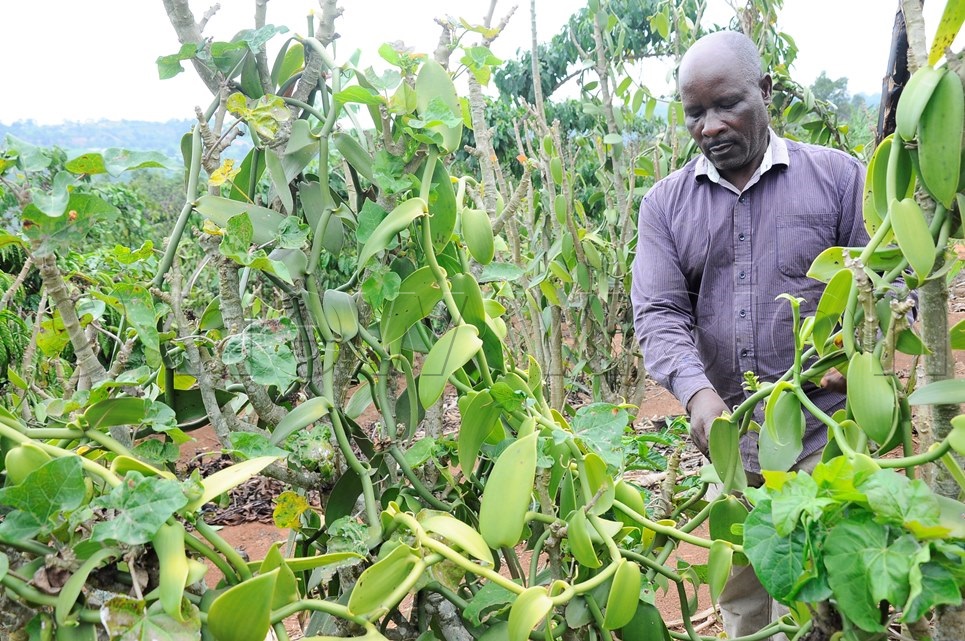By Umar Nsubuga
Vanilla should be provided with a lot of shade for best results because naturally, it is a creeping forest plant.
Phoebe Kagambe, a vanilla farmer in Rwentale-Kamata village, Kigoyera Parish, Kyarusozi sub-county in Kyenjojo district says you can prepare to plant vanilla in an already established banana plantation. It will perform just as well where bananas have been intercropped with coffee. Fine-plough the land about six weeks before planting.
She says vanilla vines require support trees which should be planted a month before. The support tree of choice is the Jatropha curcas locally known as ekirowa.
Simon Kayondo, a famous vanilla farmer, a resident of Nkoni, Nabyewanga village in Masaka district says it is a fast-going shrub commonly used to mark borders between pieces of land. The distance from one support tree to the next should be six feet, planted in rows of ten feet apart. This is when intercropped with bananas.

However, if vanilla is to be established as a single crop, there should be adequate shade trees with plants seven feet apart and six feet between them.
Kayondo says the vines to be planted should be between one and a half to two metres long. They should be cut 10 days before planting and placed in a shade.
During this period, the vines will wither a little but will be strong enough to rapidly adapt to the soil conditions.
When the ground is moist, Kagambe says a hole about six inches deep is dug near the support tree. The hole should be enough to bury 3-4 nodes on the vine.
The rest of the vine is wound and lightly toed to the support tree preferably with a banana fibre.
Uganda’s vanilla crop is all organically grown. This is one of the reasons it is increasingly receiving a high premium on the world market.
“Use organic manure like plant compost, cow dung or bird droppings to fertilise your crop. Bananas and coffee should act as temporary shades but more permanent trees that offer shade. Trees like calliandra and the ficus species are ideal,” he says.





